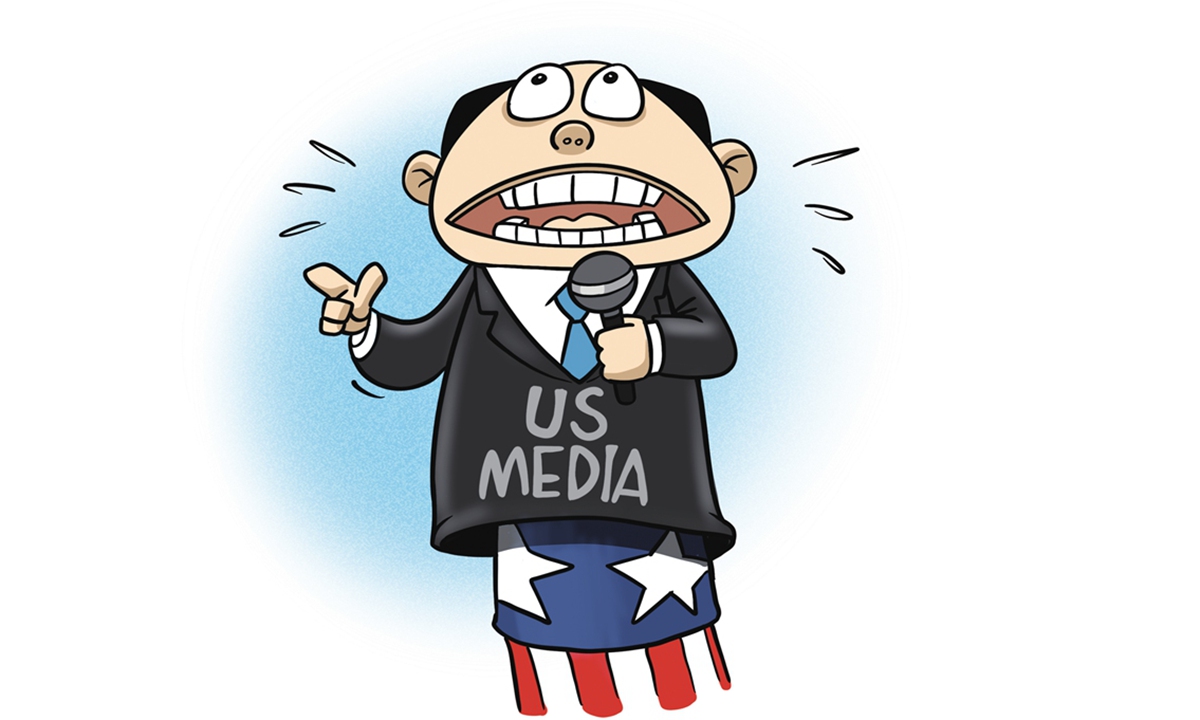
Illustration: Liu Rui/GT
Radio Free Asia (RFA) announced on March 29 that it has shut down its Hong Kong office, citing concerns about staff safety after the passage of the Hong Kong Safeguarding National Security Ordinance. This move has stirred up some waves in Western media, claiming Hong Kong's status as "one of Asia's most vibrant capitals of free and independent media has eroded precipitously." What they have not mentioned is that RFA is funded by the US Congress through the US Agency for Global Media, and was once directly operated by the Central Intelligence Agency.RFA is an organization specialized in disseminating information detrimental to China, with the aim of inciting and fostering subversion and rebellion. In other words, it is merely a US tool, Shen Yi, a professor at Fudan University, told the Global Times.
A spokesperson for the Hong Kong Special Administrative Region government expressed strong disapproval of and condemned any scaremongering or smearing remarks about the new national security legislation. The spokesperson reiterated that the new law specifically targets a small number of people who pose a threat to national security, adding that ordinary journalists would not engage in activities endangering national security, and therefore violate the law.
If RFA conducts normal reporting work in Hong Kong, why worry about the impact of the implementation of new national security ordinance on the organization and employees? The closure of RFA in Hong Kong only lays bare its nature as an anti-China, destabilizing force.
On November 13, 2019, when a violent incident occurred at the Hong Kong Polytechnic University, RFA beautified the rioters' acts of damaging the campus and creating violent weapons, instead calling it a "university defense battle." Throughout the three years of the COVID-19 pandemic, RFA had been active, constantly spreading rumors and smearing the Hong Kong government's epidemic prevention work, stirring up public sentiments. In recent days, it has kept interviewing "Hong Kong independence" activists, spreading false information about the Article 23 legislation.
RFA has a notorious history of fabricating news to oppose China and disrupt Hong Kong, using extremely biased language and reporting angles that lack credibility. Some foreign media outlets have used the closure of RFA to highlight "the deterioration of press freedom in Hong Kong." How can they equate rumor-mongering RFA with legitimate media organizations? Where are their journalistic professionalism and ethics?
The closure of RFA is not due to a lack of press freedom in Hong Kong, but rather because it has found no surviving soil under the Article 23 legislation, which is aimed at protecting Hong Kong from the influence and interference of foreign political bodies. It has no choice but to flee. If RFA does things right, stands upright, and fulfills the responsibilities of a normal media outlet, what does it have to fear?
The closure of RFA is indeed a trend, and the National Security Law for Hong Kong and Article 23 legislation have served as a deterrent. Facing the institutional red line drawn by relevant laws to safeguard national security, the troublemakers who once sowed discord and caused chaos in Hong Kong can no longer exploit legal loopholes, and are withdrawing hurriedly, Li Xiaobing, an expert on Hong Kong, Macao and Taiwan affairs from Nankai University, told the Global Times.
Earlier this year, US National Security Advisor Jake Sullivan openly stated that the "efforts, implied or explicit, to shape or change the PRC over several decades did not succeed." In essence, the closure of RFA is not primarily due to the passage of the Article 23 legislation, but, as Sullivan stated, shows the final chapter of the failed US "effort."
